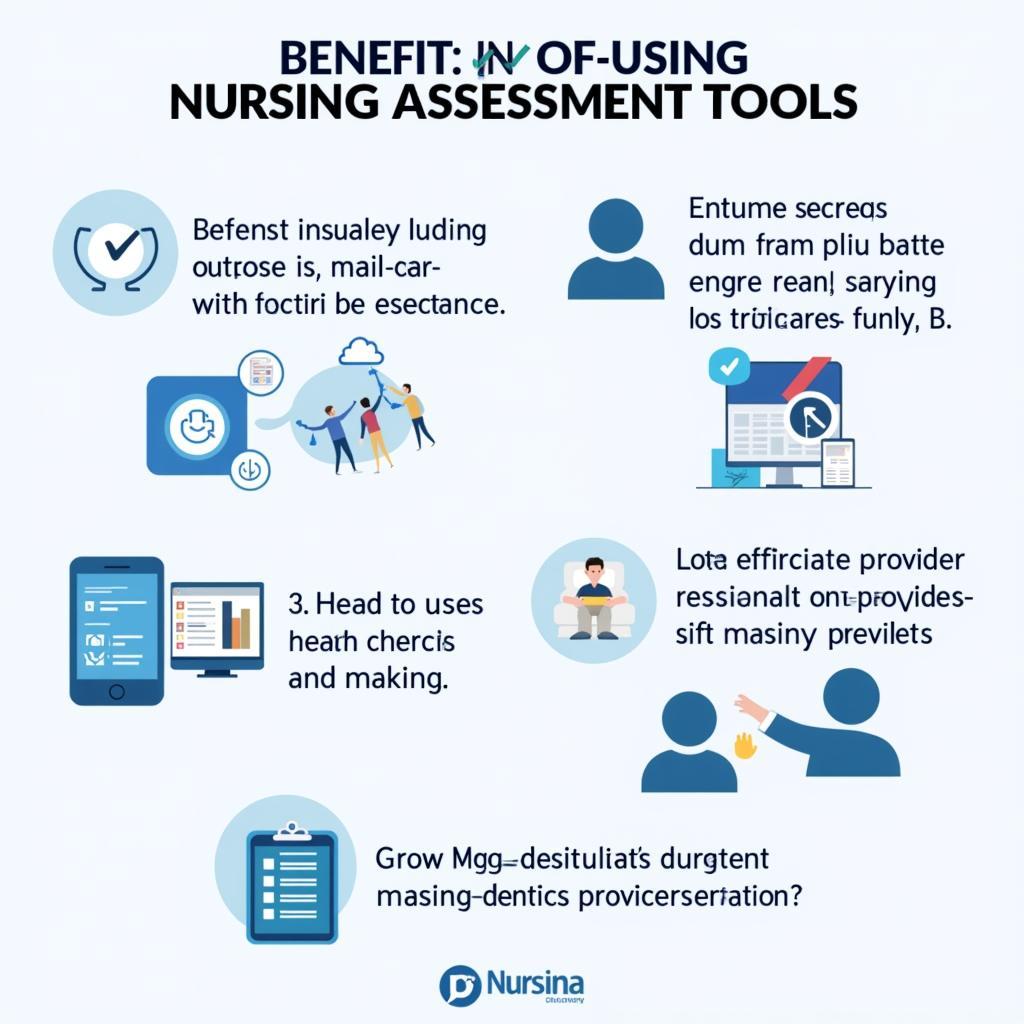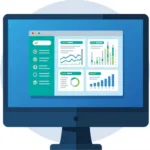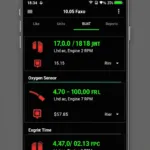Assessment tools play a crucial role in modern nursing care, providing a systematic and standardized approach to evaluating a patient’s health status. These tools help nurses gather essential information, identify potential problems, and develop effective care plans. They are indispensable for ensuring quality care and improving patient outcomes. Let’s explore the world of assessment tools in nursing and understand their significance in delivering personalized and effective healthcare. You can find more information on specific care tools, such as the care assessment tool.
Types of Assessment Tools in Nursing
Nursing assessment tools vary widely depending on the specific area of focus, the patient population, and the healthcare setting. Some common categories include:
- Physical Assessment Tools: These tools, like stethoscopes and blood pressure monitors, help assess physical health parameters such as vital signs, mobility, and sensory perception.
- Psychological Assessment Tools: These tools evaluate mental health status, cognitive function, and emotional well-being. Examples include questionnaires, interviews, and standardized tests.
- Pain Assessment Tools: These tools help nurses quantify and qualify a patient’s pain experience. They can range from simple numerical rating scales to more complex visual aids.
- Functional Assessment Tools: These instruments focus on a patient’s ability to perform daily activities, such as bathing, dressing, and eating.
- Risk Assessment Tools: These tools assess the likelihood of a patient developing specific health problems, such as pressure ulcers or falls.
Choosing the Right Assessment Tool
Selecting the appropriate assessment tool is critical for obtaining accurate and relevant information. Factors to consider include the patient’s age, cognitive abilities, language skills, and cultural background. The tool should also be reliable, valid, and easy to use in the clinical setting.
The Importance of Standardized Assessment
Standardized assessment tools provide a consistent and objective framework for evaluating patient data. This consistency allows for better communication between healthcare providers, facilitates accurate comparisons over time, and supports evidence-based practice. Standardized assessments contribute to improved patient safety and help identify trends and patterns in patient care. For a deeper understanding of the assessment process, explore our resources on care tool assessment.
Benefits of Using Assessment Tools
- Improved Patient Outcomes: By identifying problems early and tailoring interventions to individual needs, assessment tools contribute to better patient outcomes.
- Enhanced Communication: Standardized tools facilitate clear communication between nurses, physicians, and other healthcare professionals.
- Data-Driven Decision Making: Assessment data provides objective evidence for clinical decision-making and evaluating the effectiveness of interventions.
- Increased Efficiency: Using structured tools can streamline the assessment process and save valuable time for busy nurses.
Assessment Tools and the Future of Nursing
As healthcare continues to evolve, assessment tools are becoming increasingly sophisticated. The integration of technology, such as electronic health records and mobile applications, is transforming the way assessments are conducted and documented. For instance, you can find helpful resources related to ongoing care on our page about the continuing care assessment tool. Telehealth platforms are also expanding access to assessments for patients in remote areas or those with limited mobility. These advancements are empowering nurses to provide more personalized, proactive, and data-driven care. You can also find information related to overall health assessments on our assessment tools for health care page.
Embracing Technological Advancements
Nurses must embrace these technological advancements to maximize the benefits of assessment tools. This includes developing proficiency in using electronic tools, interpreting data effectively, and ensuring patient privacy and confidentiality.
Conclusion
Assessment tools are essential components of effective nursing care. They provide a structured and standardized approach to evaluating patient health, enabling nurses to identify needs, develop care plans, and improve patient outcomes. By embracing technological advancements and continuing to refine assessment practices, nurses can ensure that they are providing the best possible care for their patients. Regularly utilizing assessment tools in nursing care offers crucial insights for improving patient well-being and overall healthcare quality. More specific resources, such as the oral health assessment tool for long term care, can be found on our website.
Need assistance? Contact us via WhatsApp: +1(641)206-8880, Email: [email protected] or visit us at 910 Cedar Lane, Chicago, IL 60605, USA. We have a 24/7 customer support team.


